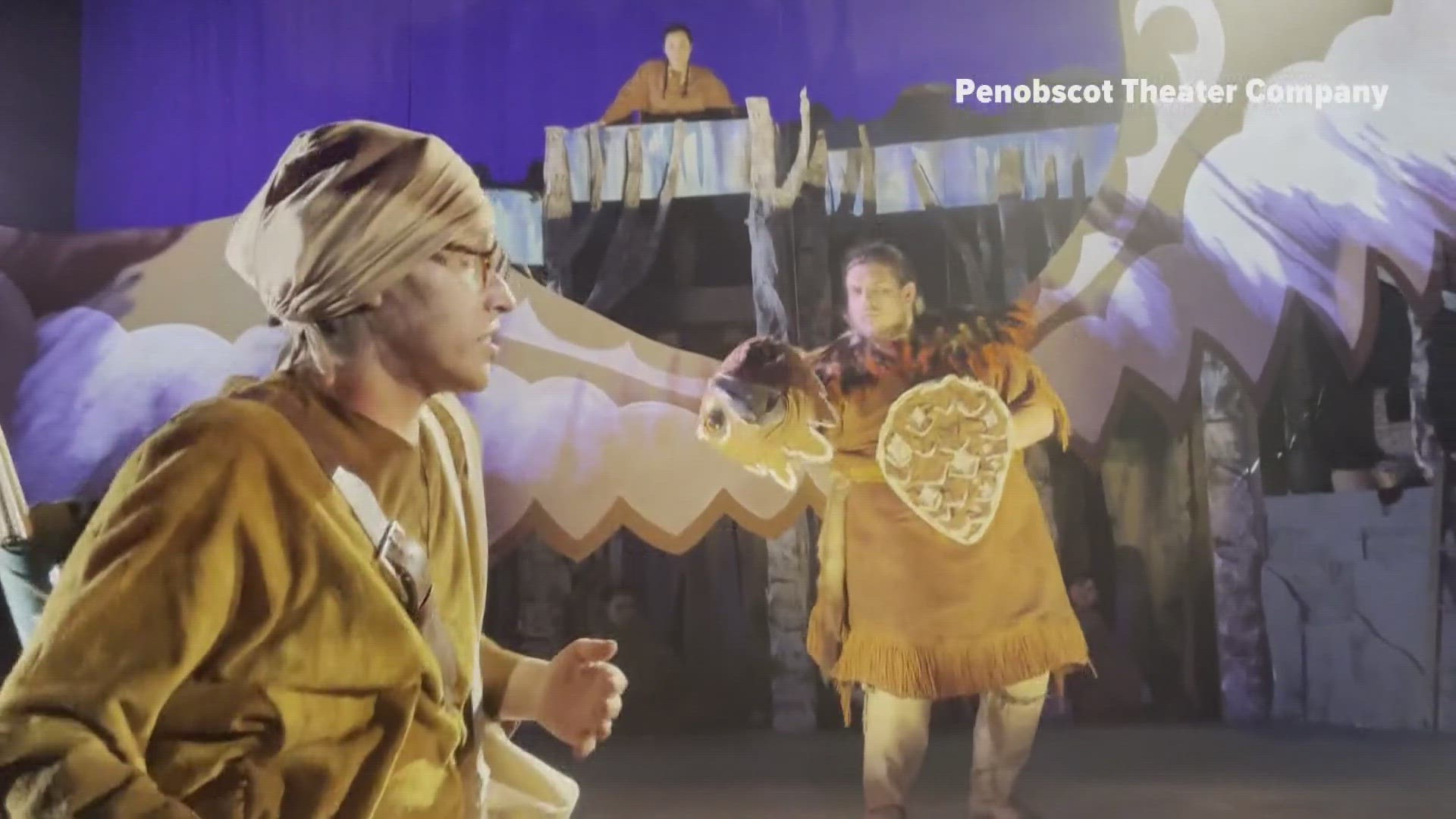BANGOR, Maine — A full house gathered at the main stage of the Penobscot Theatre Company Saturday evening for "My Story is Gluskabe," a production based on Wabanaki literature and presented, in part, through the Penobscot language.
The play is the latest effort to revive a language that nearly went extinct in the 20th century—a result of colonialism and linguistic repression.
"It’s a whole world in itself to have your language, to speak your language," Carol Dana, who for decades has played a central role in the campaign to increase speakership of Penobscot, said.
Though she teaches language classes on Zoom, Dana acknowledges that—without Penobscot in the household, it's difficult for learners to grasp the language, which as a member of the Eastern Algonquin family, has grammar and vocabulary entirely unfamiliar to English speakers.
"Our challenge is to inundate people with the language," Dana said.
While few people walked away from "My Story is Gluskabe" Saturday proficient in Penobscot, the play still made an imprint on the audience's linguistic awareness.
"People have just been moved to hear the language spoken, and to hear this point of view on the creation of the universe” Jen Shepard, the executive director of Penobscot Theatre Company, said. "People come here for the show and they leave having a better understanding of their literal neighbors."
As Dana puts it, "It’s a whole way of looking at the world where, if that’s gone, it's gone from the whole earth.
The final show of "My Story is Gluskabe" is scheduled for Sunday.

